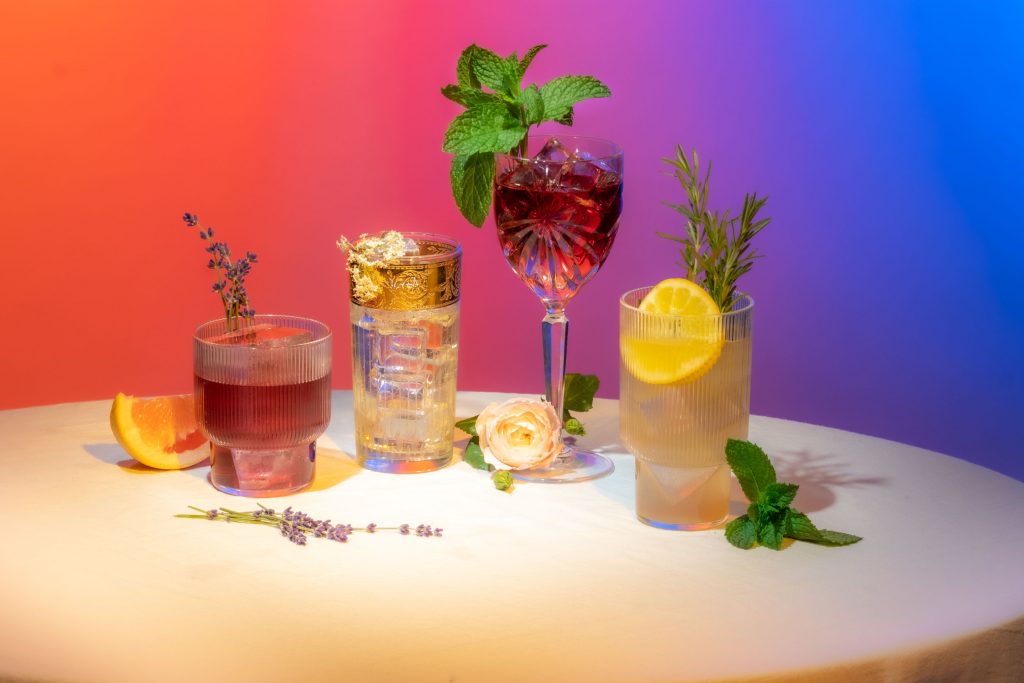Introducing Souleil Vin De Bonté’s Trio of Organic French Wines
Realizing a longtime dream, two friends blend their own approachable red, white and rosé

With the abundance of bottles along shelves in liquor stores and filtering into categories on digital ordering services, it’s a wonder how anyone settles upon a wine to bring home. Perhaps consumers returns to a beloved varietal or trusted region, maybe it’s the art on a label or a last-second whim that seals the deal. With Souleil Vin De Bonté, the allure is a blend of all of the above. Created by two childhood friends originally from the south of France, Marianne Fabre-Lanvin and Thomas Delaude, both of whom are wine experts, Souleil Vin De Bonté began as a passion project and transformed into three fresh, finessed wines perfect for an afternoon apero, romantic picnic or dinner party. Crafted using organically grown grapes from an independent producer along the Mediterranean, Souleil‘s wines—Le Rouge, Le Rosé and Le Blanc—all retail for under $20. It makes the refreshing blends even more appealing.
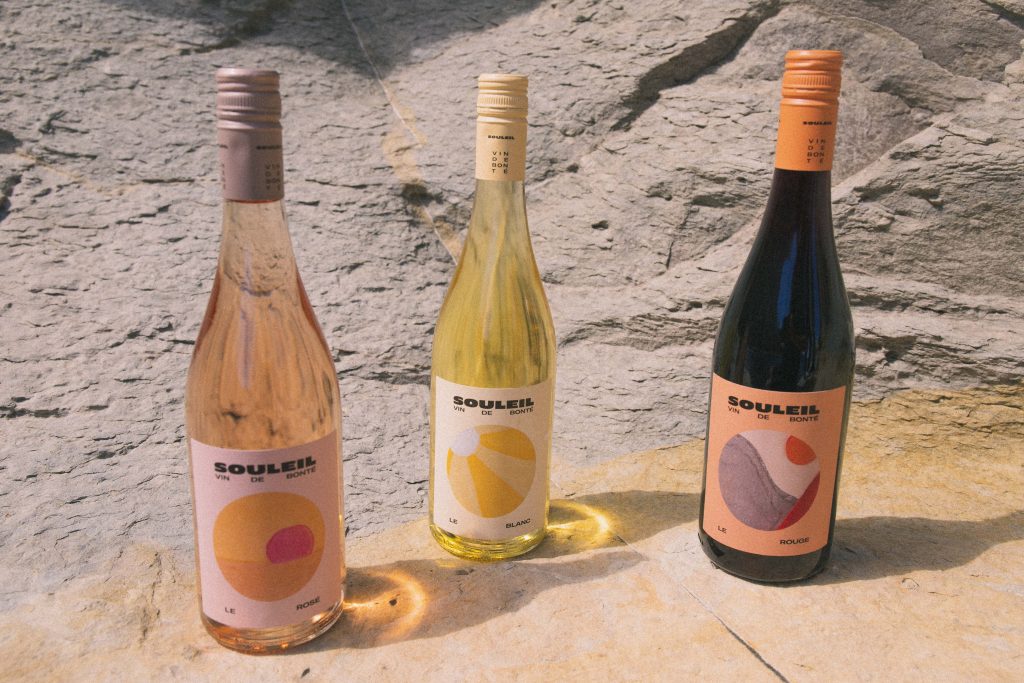
“I’ve always wanted to create my own wine,” Fabre-Lanvin, who is now based in Paris, tells us. “A little while back, Thomas and I were chatting and he said that he wanted to craft a new wine as a personal project. I said, ‘How about we do it together?’ I was waiting for this opportunity.” From the luscious liquid to the playful design and a non-profit commitment, the duo began to put Souleil’s pieces together.
“When we started conceptualizing Souleil, in addition to producing organic wines we would love, we wanted to place the environment at the forefront,” Delaude says. “As a kitesurfer, I am particularly passionate about defending our oceans. I wanted to explain the importance of producing organic wine, and highlight the link between organic wine and ocean conservation, which is why Souleil is sponsoring non-profits for beach cleanups and educational programs.” This lent the brand a purpose beyond pleasure.

As for the production process, Fabre-Lanvin jokingly aligns it with witchcraft. “We’re not in the vineyard,” she says, “but we carefully source and select the juices and then we do the blend, which is based on our personal taste. We wanted to create a wine that has this easygoing feel, a wine you know is going to appeal to everyone at the table, whether you’re a wine connoisseur or not.”
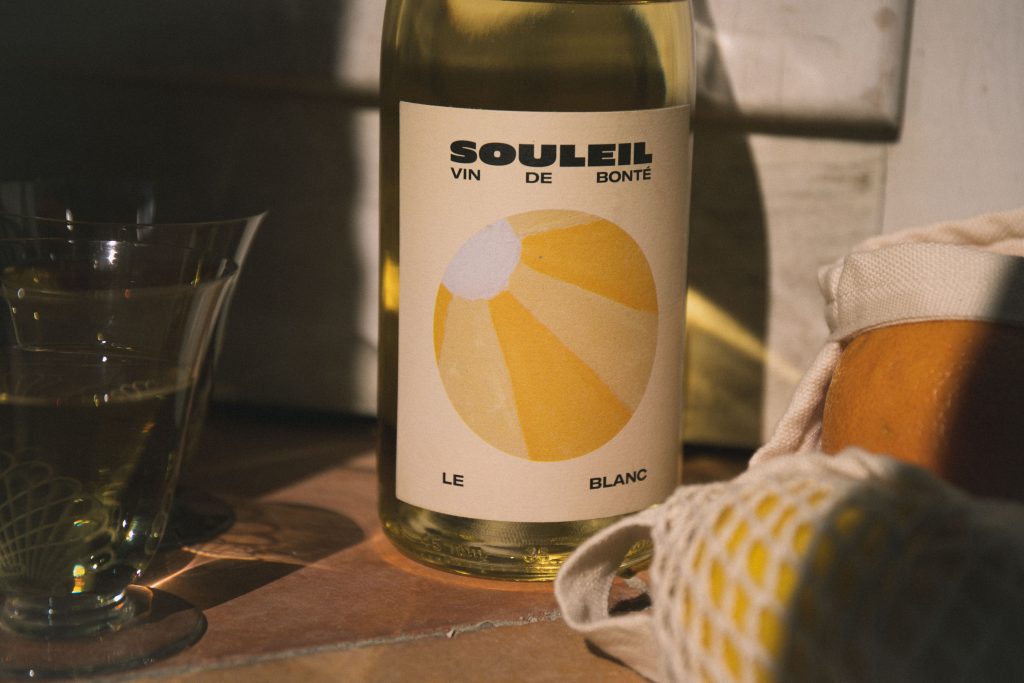
All three wines have a Mediterranean flavor profile. “We knew we wanted to include a large proportion of Piquepoul—a favorite varietal, and a match made in heaven with oysters—in the Le Blanc,” Fabre-Lanvin says. “Le Rosé is mostly Grenache Noir, because we believe that it is one of the best grapes to use for rosé wines: it is juicy and we love its ripe, red fruit flavors. For Le Rouge, we wanted something fresh and versatile that you could slightly chill and either serve on its own—thanks to its supple tannins, good acidity and fruit flavors—or pour with a meal.”
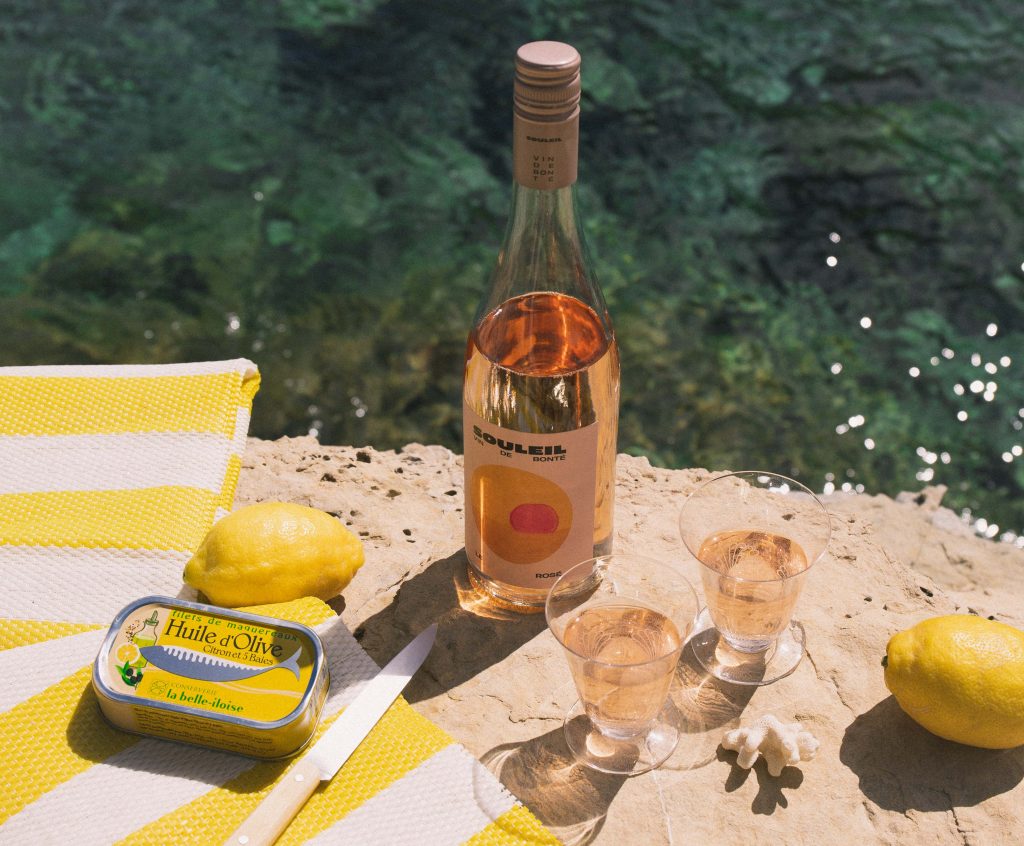
The label design directly coincides with the liquid within. “We love the warm color palette,” Fabre-Lanvin says. “We discussed the project and thought of oceans and sunsets. We wanted the design to be French in a way. We were drawn to images of early 20th century eau de cologne labels, and the ’60s and ’70s French Mediterranean vibe found in iconic films and fashion editorials from those decades.”
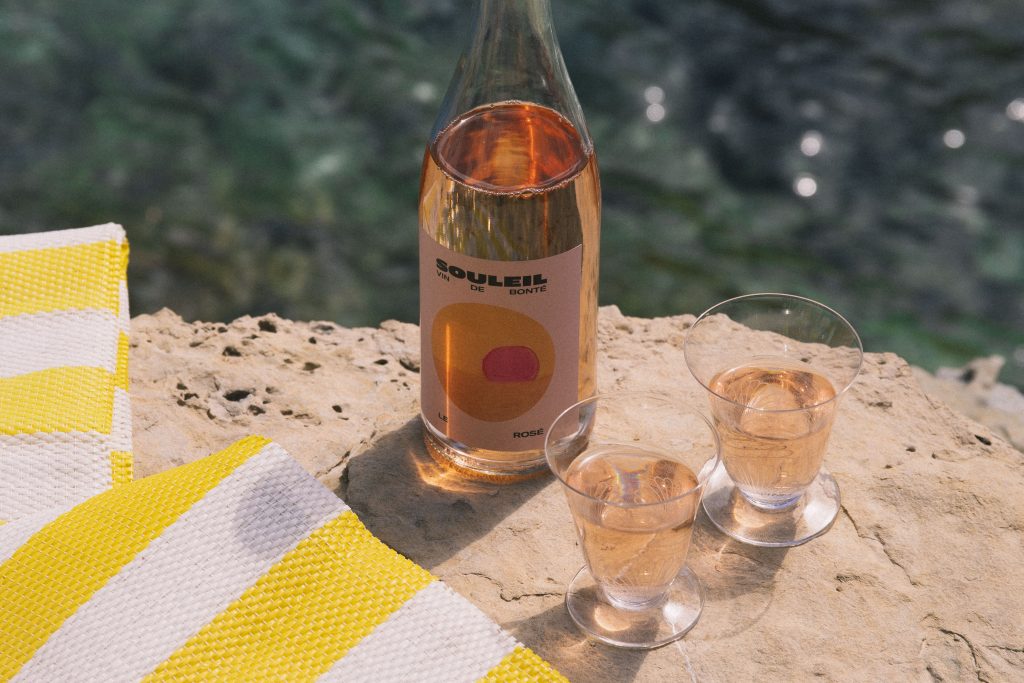
To translate these wisps of inspiration into bottles, the partners tapped their friend Anna Polonsky, founder of branding agency Polonsky & Friends. “When my lead graphic designer Claire Dufournier and I started to speak with Marianne and Thomas, they spoke extensively about how they wanted their wine to reflect the warmth and retro charm of the South of France while also looking toward the future,” Polonsky says.
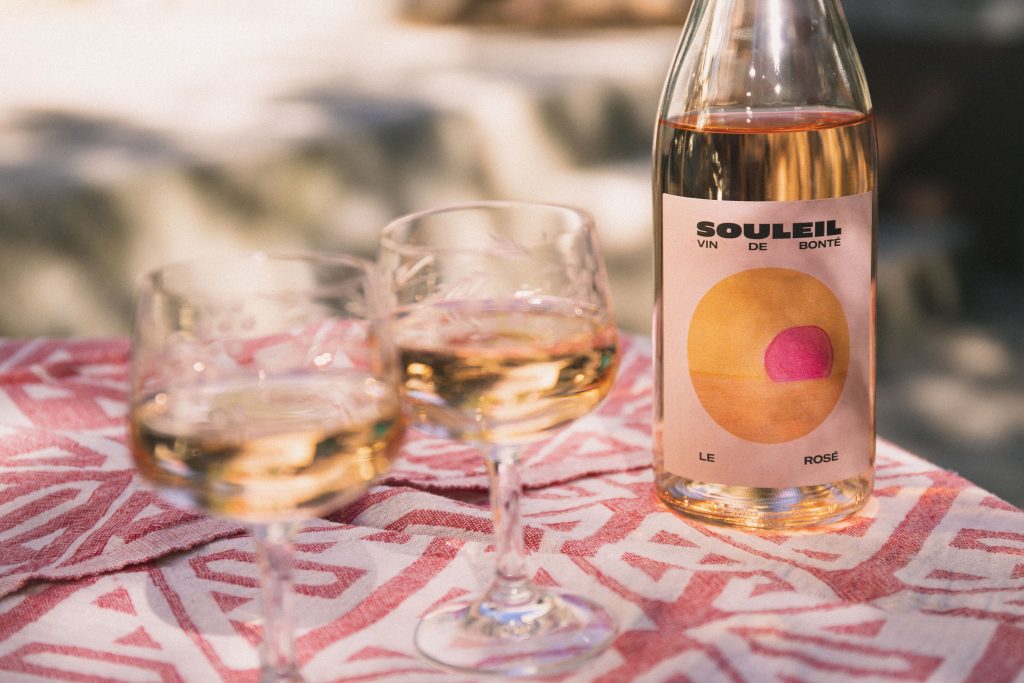
“As a result, we shared a couple of creative directions with them, and they chose the one inspired by ’20s to ’70s eau de cologne labels and aperitif posters,” she continues. “Those were true graphic masterpieces, often combining monochromes, naive imagery and specific layouts and framing techniques with elegant and timeless typography work. The team wanted these graphic qualities to transpire in our wine labels for a feel that would be subtly vintage, graphic and unapologetically French.”
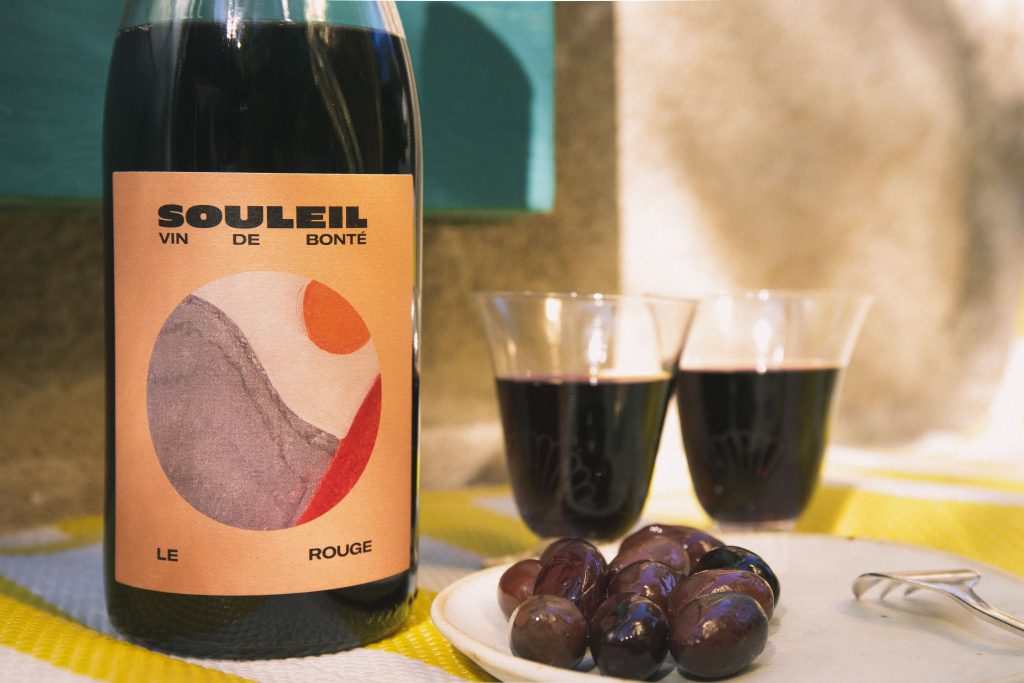
To do this, “Claire created coastal, maritime illustrations with old school French crayons, each of them featuring a sun in different settings, as a homage to the brand’s name which means sun in the Occitan dialect,” Polonsky continues. “The illustrations were paired with a beautiful font evoking the ’60s to ’70s South of France feel. The abstract iconography, combined with the circular frame, sans serif fonts and the poppy monochromes bring a contemporary touch to the vintage inspiration.”
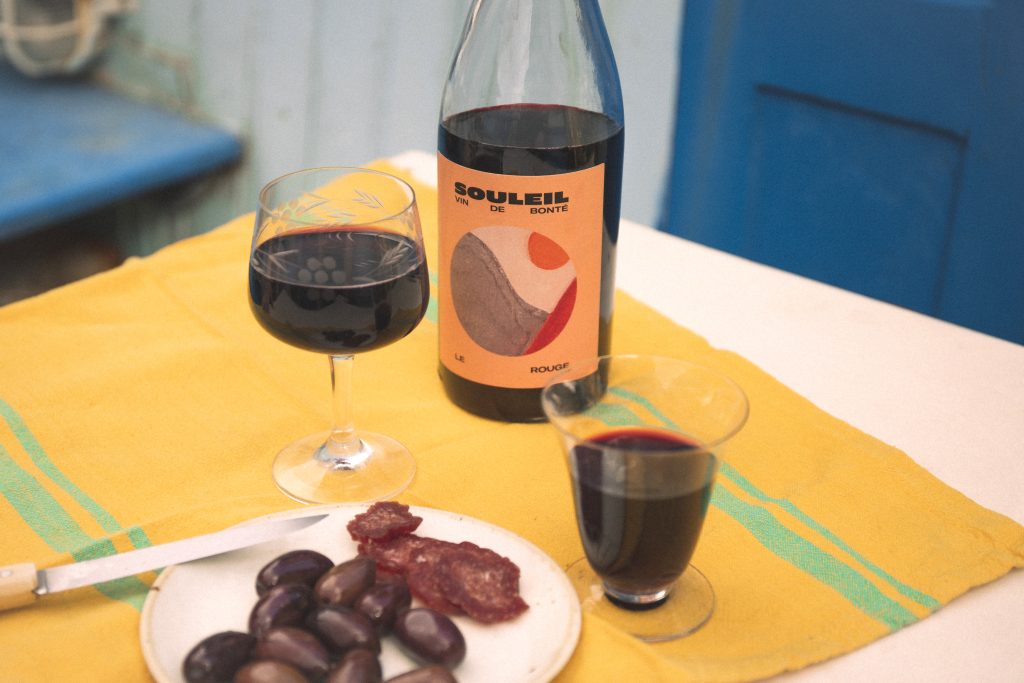
For the non-profit partner, Fabre-Lanvin and Delaude looked to another friend, Carolina Sevilla, co-founder of 5 Minute Foundation, an initiative that organizes beach cleanup sessions and encourages education globally. With proceeds from Soleil, they’ve been “organizing simultaneously with cleanups in France with another organization—placing stations for our program Friends of the Ocean or educating students at public and private schools in Costa Rica through our program Ocean Heroes,” Sevilla says. Perhaps unsurprisingly, Soleil intends to offer their wine to volunteers at the foundation’s gatherings, beginning with cleanups in Mauritius (where Fabre-Lanvin’s sister lives).
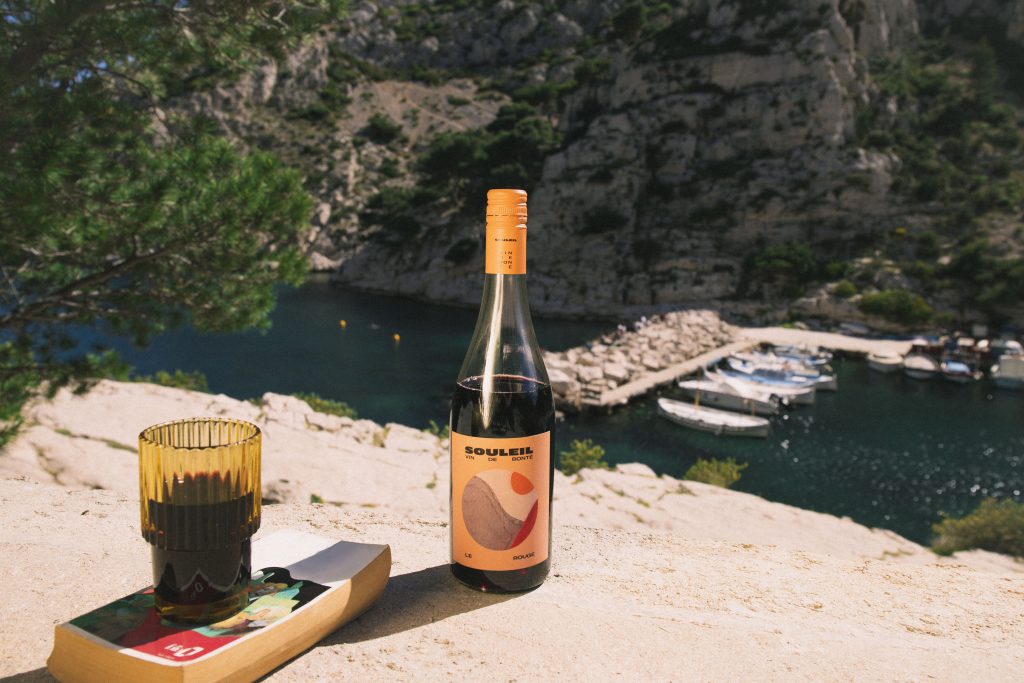
Through their personal network, Soleil has achieved distribution in the US, Ibiza, Australia and other locations. Fabre-Lanvin has a vision for the future, too. “Souleil is a way to entertain as well as do something good for and with our friends and wider circles. We want to be present wherever our extended circle is, and really our ambition is to have fun.”
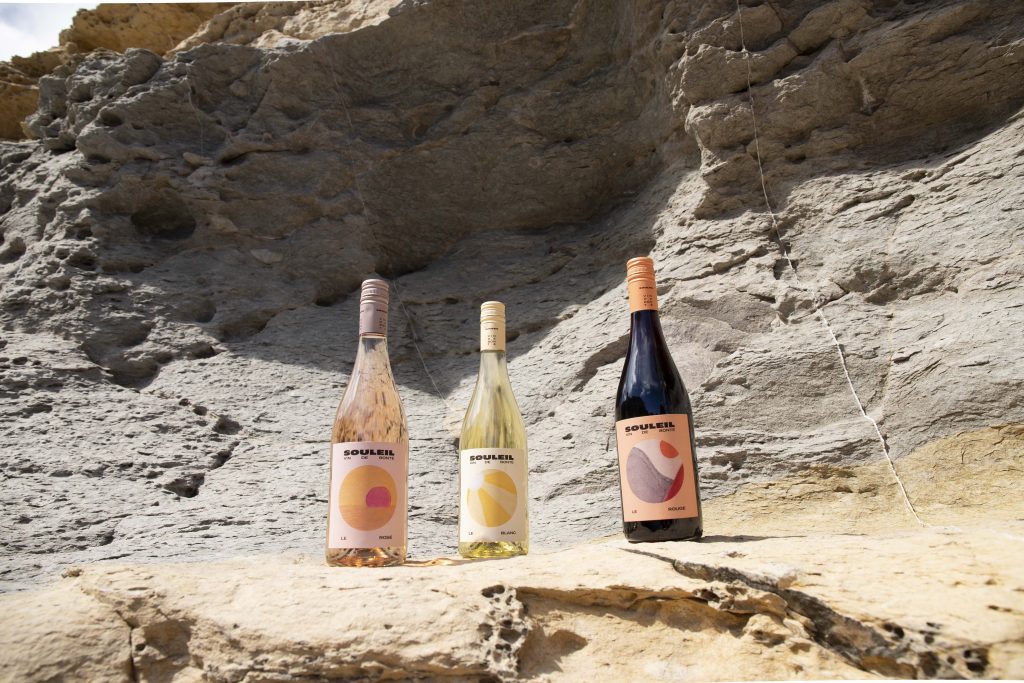
Delaude adds, “In a few years, I hope to be able to share Souleil with more friends by the seaside and have our team and those in our circle participate in beach-cleaning events that lead to plastic upcycling, set up by non-profit partners around the world.” It’s a worthy, social ambition from a brand that aims to be accessible.
In the US, Souleil is now available to order through Convive Wines.
Photos by David Fritz Goeppinger and Doris Poe
